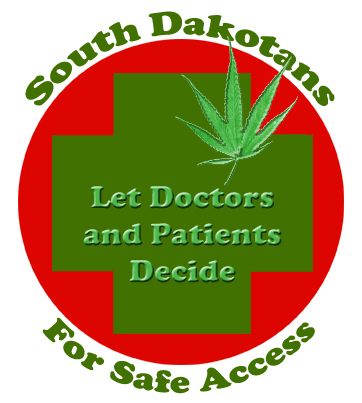Printed in the Rapid City Journal and the Rapid City Weekly News;
Evil is the word for it
Opinion by Bob Newland
“Anything causing harm, pain, etc.†is the definition of the word “evil†as a noun in my dictionary. For “evil†as an adjective, the definition reads, “morally bad or wrong.†While the argument over what is “morally wrong†too often extends to trying to criminalize the merely annoying , I’d think we could agree on the following premises:
It is morally wrong to purposefully withhold relief from someone suffering the pain and nausea caused by many medical conditions. To withhold such relief is synonymous with “causing pain, harm, etc.â€
Cannabis provides such relief for untold tens of thousands of people. “Untold,†because the mere act of relieving one’s pain or nausea with cannabis is a crime, with barbaric consequences for those who are prosecuted.
Federal law proclaims that cannabis has “no medical use.†While trying to refrain from commenting on the obvious arrogance of such a statement, the topic is simply no longer open for serious discussion. Cannabis has a wide range of indications for a wide range of medical conditions. If you maintain that cannabis has no medical use, for anyone, anywhere, you’re no longer a party to this conversation.
The immediate question is: Why does South Dakota law forbid use of an easily accessible, inexpensive and safe medication to those who can benefit from it? Here are a few practical suggestions:
1. Recognize the fact in state law that cannabis has accepted medical use. Stop enforcing federal laws that are based on an obviously absurd presumption.
2. Allow patients with a doctor’s recommendation to grow, possess and use cannabis for their ailments. Allow another person to grow cannabis for those who can’t do it for themselves.
3. Make illegal any attempt, by any state entity or company or organization that does business with the state, to punish people who have recommendations to use cannabis, or to punish their doctors for recommending cannabis.
4. Make “medical necessity†a recognized affirmative defense to a charge of possession or ingestion of cannabis (“marijuanaâ€). That will allow juries and judges to take an accused person’s medical condition and his attempts to medicate that condition into account in arriving at a verdict or sentence.
During the run-up to the 2006 election, Attorney General Long complained about certain portions of the proposed medical cannabis law we had placed on the ballot. He did not say there was no medical use for marijuana. On December 9, South Dakotans for Safe Access sent Mr. Long a letter, offering to meet with him and join in drafting a law that would at least accomplish most of the criteria set out above.
Regardless of the Attorney General’s response, there will be a bill introduced for consideration in the 2009 legislative session. There are no good reasons to deny people the often nearly miraculous benefits of an herb whose use is safer than using aspirin. One might say that to do so is evil.
In a debate filled with irony, most ironic is this: Anyone with mobility can make connections and get “marijuana†in short order, even though penalties for distributing or possessing it are draconian. Under current law, those most likely to be deprived of cannabis are the seriously sick or wheelchair-bound for whom cannabis is often life-sustaining medicine.
